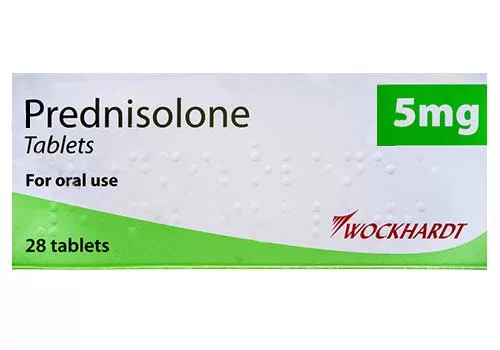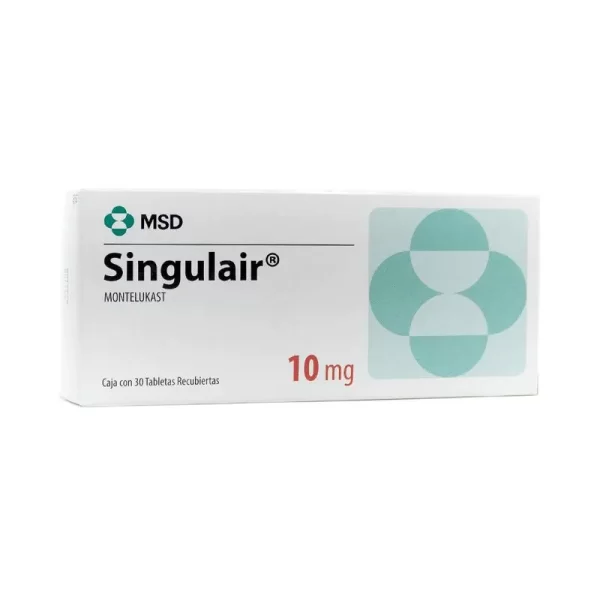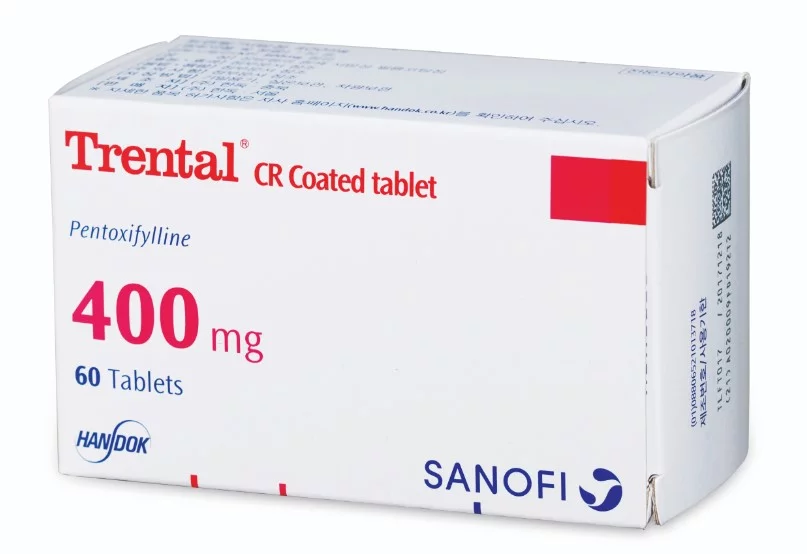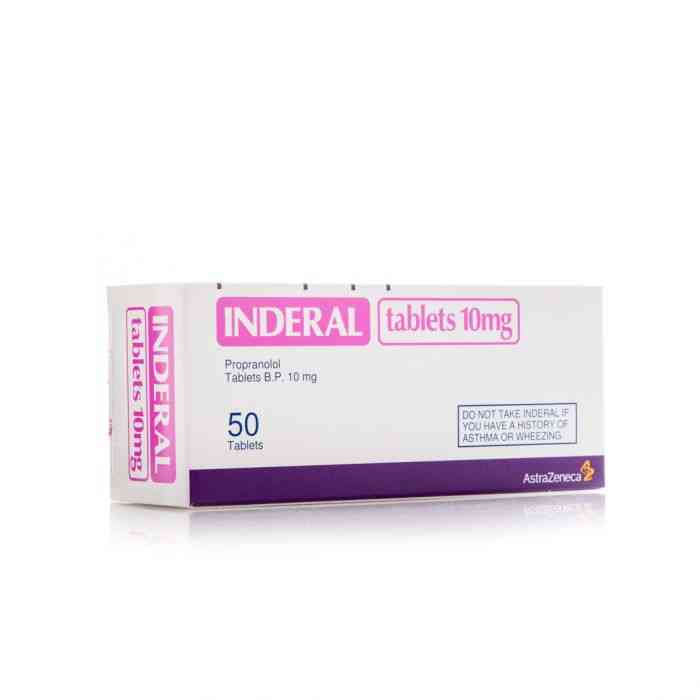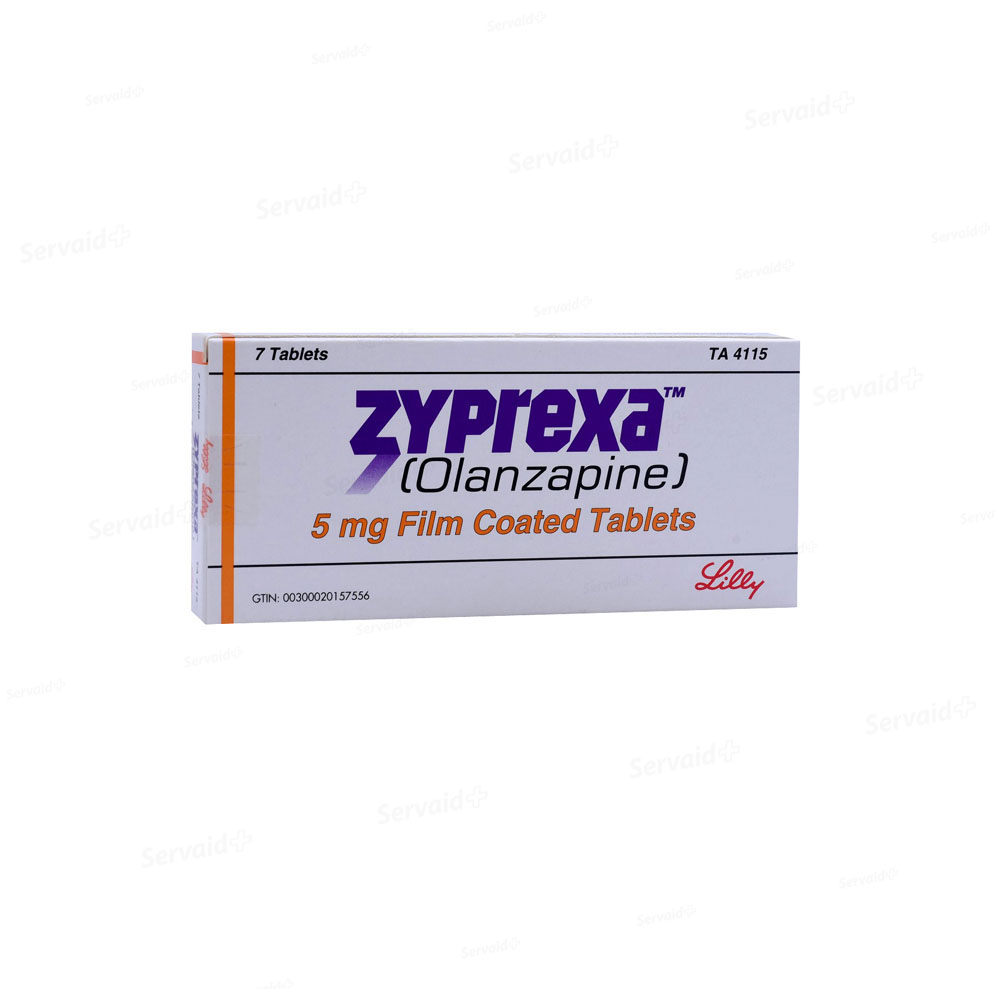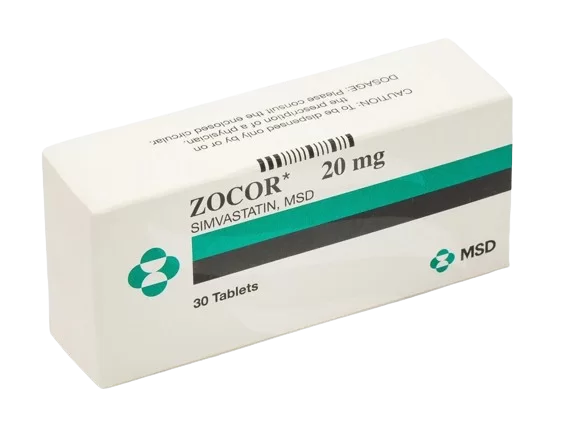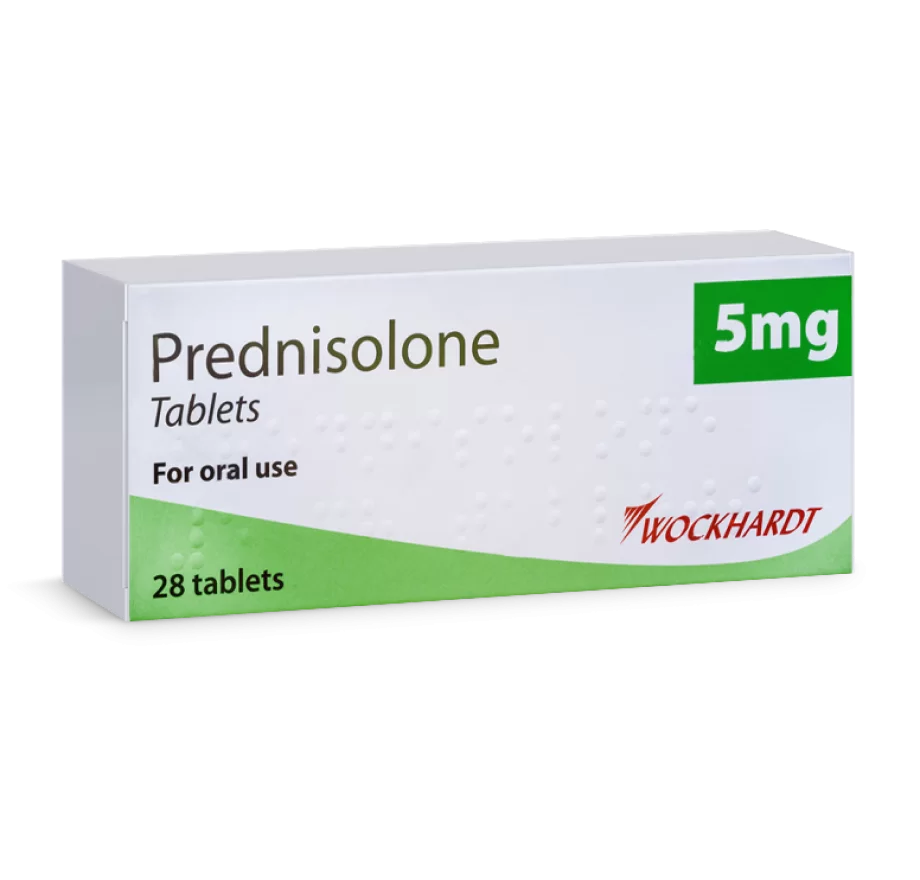
Prednisolone
Prednisolone - 40mg
| Product | Per Pill | Savings | Per Pack | Order |
|---|---|---|---|---|
| 30 pills | $1.69 | $50.68 | Buy Now | |
| 60 pills | $1.09 | $35.94 | $101.37 $65.43 | Buy Now |
| 90 pills | $0.89 | $71.88 | $152.05 $80.17 | Buy Now |
| 120 pills | $0.79 | $107.82 | $202.74 $94.92 | Buy Now |
| 180 pills | $0.69 | $179.70 | $304.11 $124.41 | Buy Now |
| 270 pills | $0.62 | $287.52 | $456.16 $168.64 | Buy Now |
| 360 pills | $0.59 | $395.34 | $608.22 $212.88 | Buy Now |
Prednisolone - 20mg
| Product | Per Pill | Savings | Per Pack | Order |
|---|---|---|---|---|
| 60 pills | $0.87 | $51.94 | Buy Now | |
| 90 pills | $0.72 | $13.40 | $77.91 $64.51 | Buy Now |
| 120 pills | $0.64 | $26.80 | $103.88 $77.08 | Buy Now |
| 180 pills | $0.57 | $53.60 | $155.81 $102.21 | Buy Now |
| 270 pills | $0.52 | $93.80 | $233.72 $139.92 | Buy Now |
| 360 pills | $0.49 | $134.00 | $311.63 $177.63 | Buy Now |
Prednisolone - 10mg
| Product | Per Pill | Savings | Per Pack | Order |
|---|---|---|---|---|
| 60 pills | $0.85 | $50.98 | Buy Now | |
| 90 pills | $0.70 | $13.46 | $76.47 $63.01 | Buy Now |
| 120 pills | $0.63 | $26.92 | $101.97 $75.05 | Buy Now |
| 180 pills | $0.55 | $53.84 | $152.95 $99.11 | Buy Now |
| 270 pills | $0.50 | $94.22 | $229.42 $135.20 | Buy Now |
| 360 pills | $0.48 | $134.59 | $305.89 $171.30 | Buy Now |
Prednisolone - 5mg
Overview of Prednisolone
General Introduction to Prednisolone
- Prednisolone is a synthetic glucocorticoid drug commonly used to treat a variety of inflammatory and autoimmune conditions. It mimics the action of cortisol, a hormone naturally produced by the adrenal glands. Prednisolone is effective in reducing inflammation and suppressing the immune response. It is used in conditions such as asthma, rheumatoid arthritis, lupus, allergic reactions, and inflammatory bowel diseases. Prednisolone is available in various forms, including oral tablets, liquid solutions, and injectable forms.
Key Benefits and Unique Properties of Prednisolone
- Anti-inflammatory Action: Reduces inflammation effectively in various conditions.
- Immunosuppressive Effects: Suppresses the immune system, helpful in autoimmune diseases.
- Versatile Applications: Used in a wide range of conditions, from respiratory diseases to skin disorders.
- Fast-Acting: Provides quick relief from symptoms of inflammation and allergy.
- Multiple Forms: Available in oral, injectable, and topical forms, providing flexibility in administration.
Effectiveness of Prednisolone
- Clinical studies have demonstrated the efficacy of Prednisolone in reducing symptoms and improving the quality of life in patients with inflammatory and autoimmune conditions. It is particularly effective in acute exacerbations of asthma and chronic obstructive pulmonary disease (COPD), as well as in managing flare-ups of rheumatoid arthritis and lupus.
Safety and Tolerability of Prednisolone
- Prednisolone is generally well-tolerated when used as prescribed. Common side effects include increased appetite, weight gain, insomnia, and mood changes. Long-term use can lead to more serious side effects such as osteoporosis, hypertension, and increased risk of infections. Regular monitoring and adherence to prescribed dosages help mitigate these risks.
Indications for Use of Prednisolone
Diseases and Conditions Treated by Prednisolone
- Prednisolone is indicated for the treatment of various inflammatory and autoimmune conditions, including asthma, COPD, rheumatoid arthritis, lupus, allergic reactions, inflammatory bowel disease, and certain skin disorders.
Primary Symptoms and Indications for Prednisolone
- Asthma and COPD: Reduces airway inflammation, improving breathing and reducing exacerbations.
- Rheumatoid Arthritis and Lupus: Alleviates joint inflammation and pain, improving mobility and quality of life.
- Allergic Reactions: Reduces symptoms of severe allergic reactions such as swelling, itching, and hives.
- Inflammatory Bowel Disease: Decreases inflammation in the gastrointestinal tract, improving symptoms of Crohn’s disease and ulcerative colitis.
Dosage and Administration of Prednisolone
Recommended Dosage of Prednisolone
- The dosage of Prednisolone varies depending on the condition being treated. For acute exacerbations of asthma, doses typically range from 40-60 mg daily. For chronic conditions such as rheumatoid arthritis, the starting dose may be 5-10 mg daily, adjusted based on response.
Timing and Frequency of Prednisolone Administration
- Asthma and COPD Exacerbations: Administered once daily in the morning to mimic the body’s natural cortisol rhythm.
- Chronic Conditions: Divided doses or single daily dose depending on the patient’s response and tolerance.
Additional Recommendations for Prednisolone Use
- Proper Use: Follow the dosing instructions provided by a healthcare professional. Do not skip doses or discontinue use without consulting your healthcare provider.
- Missed Dose: If a dose is missed, take it as soon as remembered unless it is almost time for the next dose. Do not double the dose to make up for the missed one.
- Monitoring: Regular blood pressure, blood sugar, and bone density monitoring are recommended for patients on long-term therapy.
Mechanism of Action of Prednisolone
Description of Prednisolone Mechanism
- Prednisolone works by binding to glucocorticoid receptors in the body, leading to a decrease in the production of inflammatory chemicals. It also suppresses the immune system by reducing the activity and proliferation of immune cells.
Biochemical Processes Involving Prednisolone
- Glucocorticoid Receptor Activation: Prednisolone binds to glucocorticoid receptors, altering the expression of anti-inflammatory genes.
- Inhibition of Pro-inflammatory Cytokines: Reduces the production of cytokines such as IL-1, IL-6, and TNF-alpha, which play a key role in inflammation.
- Suppression of Immune Response: Decreases the activity of lymphocytes and macrophages, reducing the immune response.
Physiological Effects of Prednisolone
- Reduction in Inflammation: Decreases swelling, redness, and pain associated with inflammatory conditions.
- Immunosuppression: Helps control autoimmune diseases by suppressing overactive immune responses.
- Improved Respiratory Function: Reduces airway inflammation, improving breathing in asthma and COPD.
Composition of Prednisolone
Active Ingredients in Prednisolone
- The active ingredient in Prednisolone is prednisolone itself, which is a glucocorticoid.
Inactive Ingredients in Prednisolone
- Inactive ingredients may include lactose monohydrate, magnesium stearate, microcrystalline cellulose, and other excipients depending on the formulation. These ingredients help stabilize the formulation and ensure proper delivery of the medication.
Side Effects of Prednisolone
General Introduction
- Understanding potential side effects helps ensure the safe use of Prednisolone. Patients should be aware of common and serious side effects to monitor their health effectively while on the medication.
Possible Side Effects of Prednisolone
- Common Side Effects: Increased appetite, weight gain, insomnia, mood swings, and gastrointestinal disturbances such as nausea and indigestion.
- Less Common Side Effects: Hypertension, diabetes, osteoporosis, cataracts, and increased risk of infections.
- Serious Side Effects: Rare but serious side effects include adrenal insufficiency, severe infections, and gastrointestinal bleeding. Immediate medical attention is required if any serious side effects occur.
Frequency and Severity of Prednisolone Side Effects
- Common side effects are generally mild and manageable with dose adjustments and supportive care. Severe side effects are rare but can be serious, necessitating immediate medical intervention. Regular follow-ups and patient education on correct usage can minimize risks.
Prevention of Side Effects of Prednisolone
General Introduction
- Preventing side effects is key to maximizing the therapeutic benefits of Prednisolone. By following preventive measures, patients can reduce the likelihood of experiencing adverse reactions.
Tips for Preventing Prednisolone Side Effects
- Proper Technique: Use Prednisolone as directed, following the instructions for proper administration.
- Regular Monitoring: Regular check-ups with healthcare providers can help detect and manage potential side effects early.
- Dietary Adjustments: Maintain a balanced diet rich in calcium and vitamin D to prevent osteoporosis.
- Hydration and Hygiene: Stay hydrated and practice good hygiene to reduce the risk of infections.
- Consult Healthcare Providers: Inform your healthcare provider about any other medications or supplements to avoid potential interactions.
Contraindications for Prednisolone
General Introduction
- Understanding contraindications ensures the safe use of Prednisolone. Certain conditions and diseases may preclude the use of this medication.
Conditions and Diseases Contraindicating Prednisolone
- Hypersensitivity: Patients with a known hypersensitivity to Prednisolone or any of its components should not use this medication. Allergic reactions can include symptoms such as rash, itching, swelling, and difficulty breathing.
- Systemic Fungal Infections: Contraindicated in patients with systemic fungal infections due to the risk of exacerbating the infection.
- Active Tuberculosis: Should not be used in patients with active tuberculosis unless it is part of a comprehensive treatment plan.
- Uncontrolled Infections: Contraindicated in patients with uncontrolled bacterial, viral, or protozoal infections.
Warnings/Precautions for Prednisolone
General Introduction
- Following precautions is essential to ensure the safe and effective use of Prednisolone. Patients should be informed about potential risks and how to mitigate them.
Important Warnings for Prednisolone
- Adrenal Suppression: Long-term use can suppress adrenal gland function, requiring gradual dose reduction to avoid withdrawal symptoms.
- Infection Risk: Increases the risk of infections; patients should avoid exposure to contagious illnesses.
- Blood Sugar Levels: Can elevate blood sugar levels, requiring monitoring in diabetic patients.
Precautions for Prednisolone Use
- Regular Monitoring: Regular check-ups with healthcare providers are essential to monitor for potential side effects and ensure effective treatment.
- Patient Education: Patients should be educated on the proper use of Prednisolone, recognizing signs of serious side effects, and when to seek medical help.
Missed Dose of Prednisolone
General Introduction
- Proper management of missed doses helps maintain effective treatment outcomes. Patients should be aware of how to handle missed doses to avoid disruptions in their treatment regimen.
Steps to Take if a Dose is Missed
- Timely Action: Take the missed dose as soon as remembered unless it is almost time for the next dose.
- Avoid Doubling: Do not double the dose to make up for the missed one. Instead, continue with the next dose as scheduled.
Tips for Adherence to Dosing Schedule
- Set Reminders: Use alarms or reminders on your phone to remember to take your doses.
- Consistent Routine: Take the medication at the same time every day to reduce the likelihood of missing a dose.
- Medication Organizer: Use a pill organizer to keep track of your doses and avoid missing any.
Drug Interactions with Prednisolone
General Introduction
- Understanding drug interactions is crucial for ensuring the safe use of Prednisolone. Some medications can affect the action of Prednisolone or increase the risk of side effects.
Examples of Drug Interactions
- Nonsteroidal Anti-Inflammatory Drugs (NSAIDs): Concurrent use with NSAIDs (e.g., ibuprofen) can increase the risk of gastrointestinal ulcers and bleeding.
- Anticoagulants: Prednisolone can affect the efficacy of blood thinners like warfarin, requiring close monitoring of blood clotting parameters.
- Diabetes Medications: Prednisolone can elevate blood sugar levels, necessitating adjustments in diabetes medications.
- Live Vaccines: Avoid live vaccines while taking Prednisolone due to the risk of developing the infection the vaccine is meant to prevent.
Preventing Negative Interactions
- Inform Healthcare Providers: Inform your healthcare provider about all medications and supplements you are taking.
- Monitor for Symptoms: Watch for signs of side effects or unusual reactions and report them to your healthcare provider promptly.
Overdose of Prednisolone
Symptoms of Overdose
- Common Symptoms: Overdose can lead to symptoms such as fluid retention, high blood pressure, and increased blood sugar levels.
- Severe Symptoms: Severe overdose may result in symptoms like severe hypertension, muscle weakness, and gastrointestinal bleeding.
Immediate Actions in Case of Overdose
- Seek Medical Help: Immediately seek medical attention if an overdose is suspected.
- Supportive Measures: Medical personnel may provide supportive measures such as monitoring vital signs, administering medications to reduce symptoms, and providing symptomatic treatment.
Pharmacokinetics of Prednisolone
Absorption
- Rate and Extent: Prednisolone is rapidly and well absorbed after oral administration, with peak plasma concentrations occurring within 1-2 hours.
Distribution
- Tissue Distribution: Widely distributed throughout body tissues, including the brain and the central nervous system.
Metabolism
- Metabolic Pathways: Metabolized primarily in the liver to inactive metabolites.
Elimination
- Excretion: Excreted primarily in the urine as metabolites. The elimination half-life is approximately 2-4 hours.
Dosage Forms of Prednisolone
Available Forms and Strengths
- Oral Tablets: Available in various strengths, including 5 mg, 10 mg, 20 mg, and 50 mg.
- Liquid Solutions: Available in different concentrations for easy dosing adjustments.
- Injectable Solutions: Used in hospital settings for acute conditions requiring immediate intervention.
Advantages of Different Forms
- Oral Tablets: Convenient for daily management of chronic conditions.
- Liquid Solutions: Useful for patients who have difficulty swallowing tablets.
- Injectable Solutions: Provide rapid action in acute settings, such as severe asthma exacerbations or allergic reactions.
Pregnancy and Breastfeeding
Safety During Pregnancy
- Risks to Fetus: Prednisolone crosses the placenta and can affect fetal development. It should be used during pregnancy only if the potential benefits justify the potential risks to the fetus.
- Recommendations: Careful monitoring is required if Prednisolone is used during pregnancy, particularly in the first trimester.
Safety During Breastfeeding
- Excretion in Breast Milk: Prednisolone is excreted in breast milk in small amounts. Short-term use is generally considered safe, but long-term use requires caution.
- Recommendations: Monitor the infant for potential adverse effects if the mother is taking Prednisolone. Consult a healthcare provider before using Prednisolone while breastfeeding.
Storage Conditions
General Storage Recommendations
- Storage Temperature: Store at room temperature between 20°C to 25°C (68°F to 77°F).
- Protection from Light and Moisture: Keep in the original packaging, protected from light and moisture.
Shelf Life
- Expiration Date: Check the expiration date on the package and do not use the medication after it has expired.
Clinical Trials and Efficacy
Overview of Clinical Trials
- Study Design and Methods: Clinical trials include randomized controlled trials assessing the efficacy and safety of Prednisolone in treating various inflammatory and autoimmune conditions.
Key Findings and Conclusions
- Efficacy Results: Studies have shown that Prednisolone is effective in reducing inflammation and controlling symptoms in conditions like asthma, rheumatoid arthritis, and lupus.
- Safety Profile: Side effects are generally manageable with dose adjustments and monitoring. Serious side effects are rare when used correctly.
Conclusion
Summary of Key Aspects:
- Prednisolone is a versatile glucocorticoid that effectively manages a wide range of inflammatory and autoimmune conditions. It provides significant benefits in reducing inflammation, controlling symptoms, and improving the quality of life for patients.
Recommendations for Improving Therapy:
- Follow healthcare professional instructions, adhere to prescribed dosages, and attend regular check-ups to optimize treatment and minimize side effects. Monitoring and adjusting lifestyle factors can further enhance the therapeutic benefits.
Final Conclusion:
- Prednisolone is a valuable medication for managing inflammation and autoimmune conditions. Proper use and adherence to precautions maximize the therapeutic benefits and minimize risks, offering substantial improvements in patient health and well-being.
